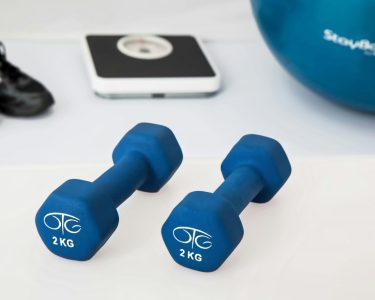As parents, we all want our children to be happy and healthy. But did you know that physical activity plays a crucial role in promoting good mental health in children? From boosting self-esteem to reducing anxiety and depression, staying active can have a profound impact on your child’s emotional well-being. In this blog post, we’ll explore the fascinating connection between exercise and mental health, and share some tips for keeping your little ones moving, motivated, and mentally strong. So let’s dive in!
The Connection between Physical Activity and Mental Health
Physical activity has been linked with a number of mental and physical health benefits for both children and adults, including improving mood, reducing anxiety and stress levels, and increasing overall productivity. In fact, the Centers for Disease Control and Prevention (CDC) recommend that all Americans engage in at least 150 minutes of moderate-intensity aerobic exercise each week to achieve overall health benefits.
One study that looked specifically at the relationship between physical activity and mental health in children found that those who exercised frequently had lower rates of anxiety, depression, ADHD symptoms, and stress than their inactive counterparts. The study also found that the more active children were, the better their mental health outcomes tended to be.
According to the CDC, regular physical activity can help improve your child’s school performance, social interactions, sleep patterns, and overall health. Not only will your child feel better physically but they will also have elevated self-esteem due to increased confidence in their abilities. Together we can work towards a healthier world for all – let’s make sure it starts with our kids!
The Benefits of Physical Activity for Children
Physical activity is important for children’s mental health and well-being. There are many benefits to physical activity for children, including improved mood, stronger bones and muscles, better sleep, and stronger social relationships.
One study found that regular physical activity was linked with a decrease in anxiety symptoms in middle school students. In addition, a study of more than 1,500 preschoolers found that those who were physically active had lower levels of anxiety and stress when compared to inactive children. These findings suggest that physical activity can help reduce anxiety in children early on in life.
Physical activity also has positive effects on the development of cognitive skills such as memory recall and problem solving. Physical activity has been shown to improve attention span and concentration in kids, which can lead to better grades and success in school.
Physical activity can also help build self-confidence and self-esteem. It is beneficial for young children to develop healthy body image and have positive attitudes towards their own health. Physical activity helps increase muscle strength, balance, coordination, agility, speed, fitness levels, and endurance. It also helps boost self-esteem by teaching kids that they are capable of doing things on their own if they put their mind to it.
How to Encourage Physical Activity in Children
Physical activity is an important part of a healthy lifestyle for children. It can help them maintain a positive mental health, which in turn can lead to better overall physical health.
There are many ways to encourage physical activity in children. You can set goals for your children, provide encouragement throughout the day, and provide opportunities for them to be active every day. You can also sign your children up for sports or other physical activities, and join in with them when they are participating.
Ways to Promote Mental Health in Children
Physical activity has been shown to have a significant impact on mental health in children. It is important for parents and guardians to understand the link between physical activity and mental health, and to make sure that their children are getting the exercise they need to stay healthy both mentally and physically.
There are many ways to promote mental health in children. Some tips include:
-Encouraging regular physical activity throughout the day. This includes things like playing outdoors, participating in sports, taking walks, biking, etc.
-Establishing rules about how much screen time each child can have per day. Limit exposure to screens such as TVs, computers, phones, etc. instead of relying on one method ofLimit exposure to screens such as TVs, computers, phones, etc. instead of relying on one method or device to monitor all children’s screen time . Screen time should be used in moderation and only when it is appropriate for a specific child’s age and development level.
-Creating a supportive environment where kids feel comfortable talking about their feelings. This can be done by providing opportunities for open communication , listening attentively , and fostering an accepting attitude towards emotions .
-Teaching children skills such as self-awareness , problem solving , stress management , and resilience . These skills can help them deal with difficult situations in life positively − whether those situations involve mental health issues or not.
Conclusion
According to the American Academy of Pediatrics, children who are physically active have lower rates of obesity, depression, anxiety and suicidal thoughts. In addition, being physically active has been shown to improve moods and cognitive function. These findings underscore the importance of encouraging physical activity in children and promoting a healthy body image. Parents can start by establishing good sleep habits for their children, setting an example by being physically active themselves, providing nutritious food and moderating screen time.




